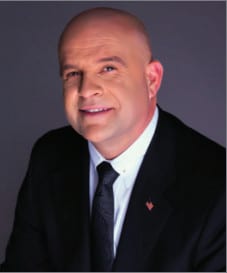Brett Brocki, founder and CEO of DreamSleep and N3Sleep, writes that training, measuring results in meaningful ways, and adapting are just a few of the elements needed to achieve the process of dental sleep success. Read the details here.
 by Brett Brocki
by Brett Brocki
To quote Jack Nicholson’s character, Col. Nathan R. Jessep, in the 1992 movie, A Few Good Men, “You can’t handle the truth!” This is an unpopular opinion, especially amongst those selling services and products in the dental sleep medicine, but it is the truth. You cannot now, in the past, nor probably will you ever be able to buy your way to Dental Sleep Medicine success.
There is no magic bullet, no miracle cure that turns on the firehose of patients and reimbursement checks from medical insurance companies. You cannot purchase a title or degree that is a substitute for the experience you gain from hands-on patient care. Sleep lab owners and physicians will tell you that they have met clinicians with an alphabet of post-nominal titles that do not take proper bite registrations, fail to follow professional organizations’ guidelines, and lack consistent communication or predictable patient management protocols needed to provide the highest level of care. Don’t be that dental sleep practice.
Certainly, there are tools that can improve your sleep practice and make it easier for you and your team to be effective, but the simple truth is that there is no replacement for hard work, experience, and good coaching. If you want your practice to succeed, you need to put in the work. This is a mindset that you must adopt if you want to succeed.
What kind of effort do you need to put forth and where do you need to focus? Here are some places to start:
Educate yourself and your team on the science and medicine of sleep
Properly treating sleep patients with oral appliance therapy (OAT) requires effective communication and genuine collaboration between dentists and physicians. That means you need to speak their language and understand their needs. The same is true on the other side; to effectively communicate with patients your whole team needs to understand what is at stake and why you are doing this. Coach your team to help people. They need to understand the effects sleep apnea has on every system in the body; on lifespan, quality of life, productivity, mood, weight, and more. When the focus is on helping people instead of fitting an appliance their sincerity will transform your sleep practice. It’s important to also understand the benefits and the limits of oral appliance therapy. Not everyone is an ideal candidate for OAT and referring out to a physician who can get them help can transform lives.
Training for yourself and your team on the systems, processes, and procedures
Sleep medicine is definitely not traditional restorative dentistry. There are innumerable moving parts. Collaboration with physicians is key. You’ll need to understand how each one of them prefers to communicate. You will need to cross every ‘T’ and dot every “I” when navigating arcane, Byzantine processes and procedures to comply with the requirements of different medical insurance companies. Your team will need to know what is required from the different labs. I’m often amazed at the new ways practices can develop to create barriers for patients or obstacles for medical reimbursement. It needn’t be that way. Get yourself a coach and a mentor to help guide you on this journey. Learn from their experiences. Many practices follow well-worn paths to success created by coaches.
Measure your results in meaningful ways, not just production
Track all your important stats that contribute to a successful practice like number of screenings, number of home sleep tests, and number of referrals. Not everyone is an ideal candidate for oral appliance therapy but to reach every ideal candidate you need to cast a wide net. If you are going to improve your operation you need to know where the snags are. Start keeping track of your patient funnel. How many screenings do you do before a patient agrees to testing? How many tests do you schedule before a patient agrees to treatment? Knowing these numbers can help you identify gaps in your process and problems with your patient communications. A simple change in wording can affect your screening and consult rates, but if you aren’t tracking these you won’t know.
Commit to incremental improvements
Success does not come overnight, but if you keep taking baby steps you’ll get there. One foot in front of the other. Repeat. Keep an eye on your key performance indicators, and commit to making small improvements every week. This is a marathon, not a sprint. Your team did not learn about OSA in school. It will take time to internalize these processes, integrate them into your dental program, and fine-tune your execution.
I’m often amazed at the new ways practices can develop to create barriers for patients or obstacles for medical reimbursement.
Adapt
The key skill to success is adaptability. Success in dental sleep medicine is a moving target: the technologies are changing constantly. Medical insurance will continue to move the goal posts and your team needs to be prepared to adapt and update protocols as necessary. Listen to your team members. Listen to your patients. And listen to physicians you are working with. Continually solicit their feedback to help you improve your protocols, efficiency, and patient care.
Repeat
Stay current with your education and training. As your team grows in experience, get them educated, and certified in their roles. This will increase their confidence and make them better at adapting as needed. Stick with the plan and keep measuring your progress. Evaluate. Adapt. Repeat.
As you cycle through this process, you may see equipment, programs, or opportunities that you can acquire. Your experiences will inform your choice to buy or not buy into these things. They may help you on your journey in dental sleep medicine. One thing is certain though, no program or equipment will help you find success if you are not doing the “work”.
Brett Brocki was a guest on the ZZZPack podcast. He asks, “Are you a winner, a whiner, or a wannabe?” Find out about the process of dental sleep success by listening here: https://dentalsleeppractice.com/zzz-pack-podcast/brett-brocki-asks-are-you-a-winner-whiner-or-wannabe/


 Brett Brocki is the Founder and Chief Executive Officer of DreamSleep and N3Sleep. Brett has been in the dental industry since birth. His mother was the former head dental assistant at Fort Bragg, and Brett has seen the inside of thousands of dental practices – including civilian, military and hospital practices. His expertise in business, finance and dental have given him exposure and unrivaled capabilities to truly bring the right picture together for overall health and wellness. Working closely with many practices to achieve the optimum sleep practice with the most thorough care, Brett has truly developed a multidisciplinary team with the tools to connect the Medical and Dental professionals into one cohesive business unit.
Brett Brocki is the Founder and Chief Executive Officer of DreamSleep and N3Sleep. Brett has been in the dental industry since birth. His mother was the former head dental assistant at Fort Bragg, and Brett has seen the inside of thousands of dental practices – including civilian, military and hospital practices. His expertise in business, finance and dental have given him exposure and unrivaled capabilities to truly bring the right picture together for overall health and wellness. Working closely with many practices to achieve the optimum sleep practice with the most thorough care, Brett has truly developed a multidisciplinary team with the tools to connect the Medical and Dental professionals into one cohesive business unit.